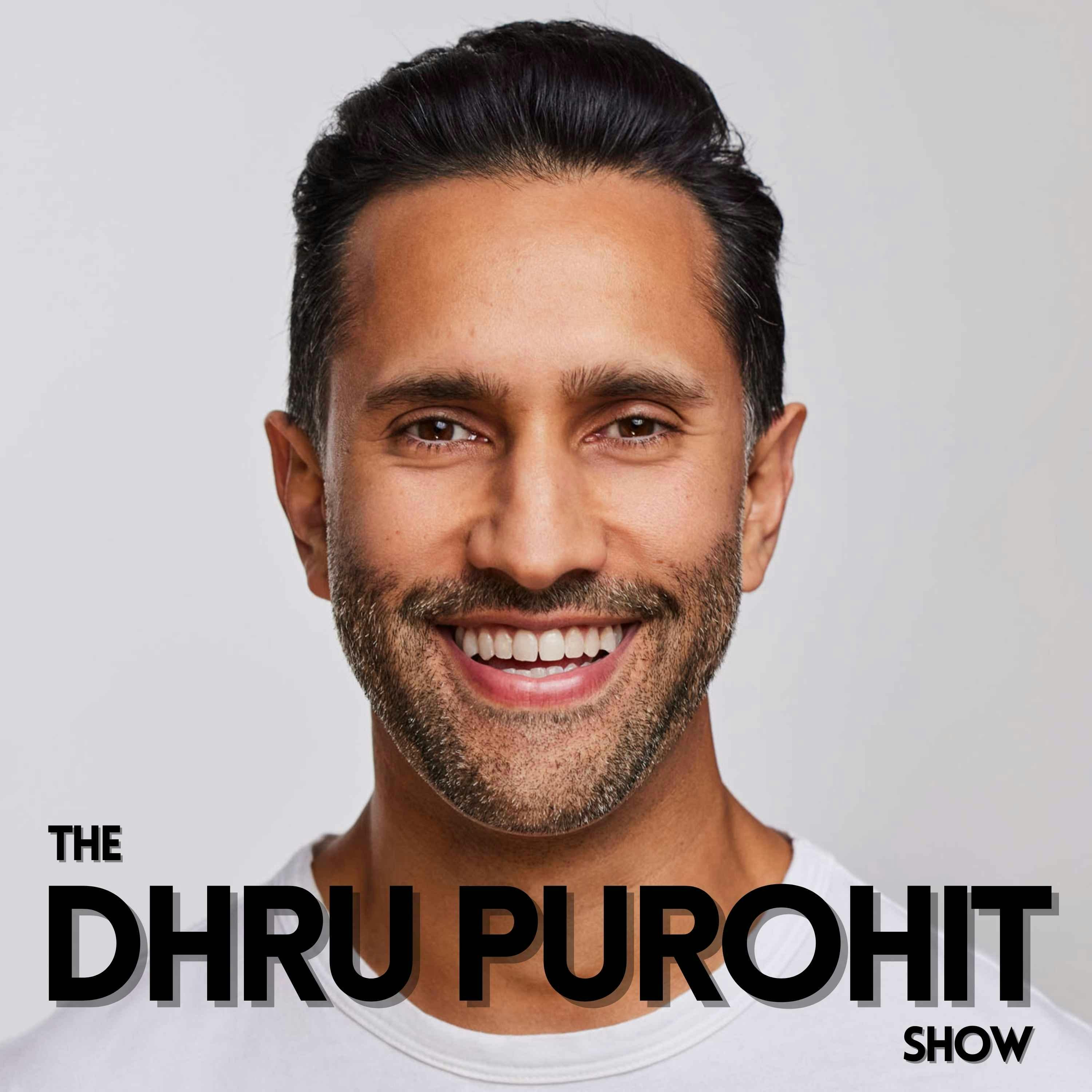
Dhru Purohit Show
Having Low Levels of this Miracle Molecule Puts You At Risk of a Heart Attack. The Best and Worst Habits to Increase Nitric Oxide Production with Dr. Nathan Bryan
24 Feb 2025
This episode is brought to you by Levels and Fatty15. When we think about long-term health and longevity, nitric oxide production probably isn’t the first thing that comes to mind. But today’s guest explains why this crucial molecule plays a key role in our bodies—and the tell-tale signs of low production that can ultimately contribute to chronic disease. Today on The Dhru Purohit Show, Dhru sits down with Dr. Nathan Bryan to explore why nitric oxide is the holy grail of molecules for long-term health—and the top lifestyle factors that can make or break its production. Dr. Bryan ranks the biggest disruptors of nitric oxide, including alcohol, poor sleep, a sedentary lifestyle, ultra-processed foods, and chronic stress, and dives into the latest research on how they impact your body. He also breaks down the critical role nitric oxide plays in disease prevention, from chronic illness to Alzheimer’s. If you’re looking for a masterclass on how to boost nitric oxide production and what habits you need to tweak, this episode is a must-listen. Dr. Nathan Bryan is a renowned biomedical researcher known for his groundbreaking work on nitric oxide (NO) biology. Dr. Bryan's research has significantly advanced our understanding of NO's critical roles in cardiovascular health, immune function, and neurobiology. Beyond academia, he advocates for public health, translating his research into practical solutions for improving human health. His new book is The Secret of Nitric Oxide. In this episode, Dhru and Dr. Bryan dive into: How alcohol impacts nitric oxide production (00:31) Why nitric oxide is crucial for health (03:12) The dangers of nicotine and smoking on nitric oxide (04:36) The controversy around seed oils (10:17) How dangerous are ultra-processed foods (18:43) How nitric oxide is created and what chronic stress does to production (26:10) Sedentary lifestyle and its impact on health risks (33:39) Nightly desserts and glucose monitoring (42:10) Intermittent fasting and the importance of meal personalization (50:15) Antiseptic mouthwash, bad breath, and the microbiome (54:09) Nitric oxide benchmarks and what test strips measure (58:50) Lack of optimal sun exposure (01:11:57) Eating nitrate-rich foods and carnivore diet concerns (01:15:14) Hydration’s role in nitric oxide levels (01:21:27) Ibuprofen, inflammation, and nitric oxide (01:23:11) N101 products and final thoughts (01:29:22) Also mentioned in this episode: Dr. Nathan Bryan’s book - The Secret of Nitric Oxide https://www.n101nutrition.com/ Try This-Firefighter Study For more on Dr. Nathan, follow him on Facebook, Instagram, X/Twitter, YouTube, and his Website. This episode is brought to you by Levels and Fatty15. Right now, Levels is offering my listeners an additional 2 FREE months of the Levels annual Membership when you use my link, levels.link/DHRU. Make moves on your metabolic health with Levels today. Fatty15 is offering an additional 15% off its 90-day subscription Starter Kit. Go to fatty15.com/dhru and use code DHRU to replenish your C15 levels for long-term health. Learn more about your ad choices. Visit megaphone.fm/adchoices
No persons identified in this episode.
No transcription available yet
Help us prioritize this episode for transcription by upvoting it.
Popular episodes get transcribed faster